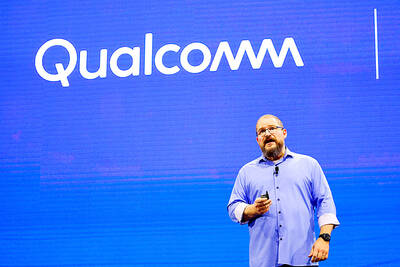The aggressive expansion of local banks has turned the rapidly ballooning housing mortgage segment into the next risk area for the nation's troubled banking sector, Macquarie Research said.
"For us, the overarching concern is no longer unsecured consumer lending, but rather than the mortgage space, an area where banks have been aggressively expanding as they seek to replace unsecured consumer loans as a growth driver," Chris Hunt, Macquarie's head of Taiwan equities research, said in a research note last week.
Even a moderate uptick in credit costs could impair the already meager profitability of housing mortgage, Hunt said.
Despite a slim possibility of a mortgage bad loan blowout, "we do perceive some risks," Hunt said, especially for new mortgage loans that were issued to speculators before the appropriate value assessments had been made.
Following the consumer credit abuse storm, local banks rediscovered the secured housing mortgage business and jumped into the segment in droves, driving the aggregate mortgage lending close to its regulatory upper limit of 30 percent of the total deposit balance and outstanding financial debts.
Despite requests by banks that the cap be lifted, the Financial Supervisory Commission did not budge, mostly over concerns of concentrated risk.
Instead, it asked banks to securitize their mortgage lending portfolios for more leeway.
Taiwan Cooperative Bank (
Taiwan Ratings Corp (中華信評), a local arm of Standard & Poor's Ratings Services, said last week it did not expect a hard landing for the nation's fast growing mortgage business as the red-hot property market showed no sign of a sudden turnaround in the short run.
However, prudence remained of the essence as a delayed negative effect would likely break out when the economy enters its downtrend, as has been the case in the US and Hong Kong, Taiwan Ratings said.
Macquarie Securities retained its "underweight" rating on local banks and banking-centric financial holding firms, citing several concerns including continued margin pressure under severe competition, the consumer credit crisis, a shortage in replacement growth drivers, unsustainable fee-based income, demand for offshore products, modest profitability, a lack of hoped-for consolidation and more flexibility for banks wishing to expand in China in the next year.

Intel Corp yesterday reinforced its determination to strengthen its partnerships with Taiwan’s ecosystem partners including original-electronic-manufacturing (OEM) companies such as Hon Hai Precision Industry Co (鴻海精密) and chipmaker United Microelectronics Corp (UMC, 聯電). “Tonight marks a new beginning. We renew our new partnership with Taiwan ecosystem,” Intel new chief executive officer Tan Lip-bu (陳立武) said at a dinner with representatives from the company’s local partners, celebrating the 40th anniversary of the US chip giant’s presence in Taiwan. Tan took the reins at Intel six weeks ago aiming to reform the chipmaker and revive its past glory. This is the first time Tan

Qualcomm Inc is strengthening its partnerships with Taiwan Semiconductor Manufacturing Co (TSMC, 台積電) and original design manufacturers (ODMs) in Taiwan as it expands its presence in the artificial intelligence (AI) computer market, CEO Cristiano Amon said in Taipei yesterday ahead of the annual Computex trade show. “Historically we’ve always been a very big customer of TSMC, and we continue to be,” Amon said during a media Q&A session. “For chip manufacturing, we’re among the largest fabless [semiconductor designers],” he said, noting that Qualcomm, a leading provider of mobile and AI-enabled chipsets, ships about 40 billion components every year, with TSMC being

‘FAILED EXPORT CONTROLS’: Jensen Huang said that Washington should maximize the speed of AI diffusion, because not doing so would give competitors an advantage Nvidia Corp cofounder and chief executive officer Jensen Huang (黃仁勳) yesterday criticized the US government’s restrictions on exports of artificial intelligence (AI) chips to China, saying that the policy was a failure and would only spur China to accelerate AI development. The export controls gave China the spirit, motivation and government support to accelerate AI development, Huang told reporters at the Computex trade show in Taipei. The competition in China is already intense, given its strong software capabilities, extensive technology ecosystems and work efficiency, he said. “All in all, the export controls were a failure. The facts would suggest it,” he said. “The US

NEW PRODUCTS: MediaTek has been diversifying its product lines to minimize operational risks as mobile chips remain the company’s biggest revenue source MediaTek Inc (聯發科), the world’s biggest supplier of smartphone chips, yesterday said the tape-out process for its first 2-nanometer chip would take place in September, paving the way for volume production of its most advanced chip, likely to be its next-generation flagship smartphone chip, around the year-end at the earliest. MediaTek has been leveraging advanced process technologies from its foundry partner, Taiwan Semiconductor Manufacturing Co (TSMC, 台積電), to build its flagship mobile phone chips, a segment it once relinquished and then recovered four years ago as it released its Dimensity series. In the semiconductor industry, a tape-out refers to the